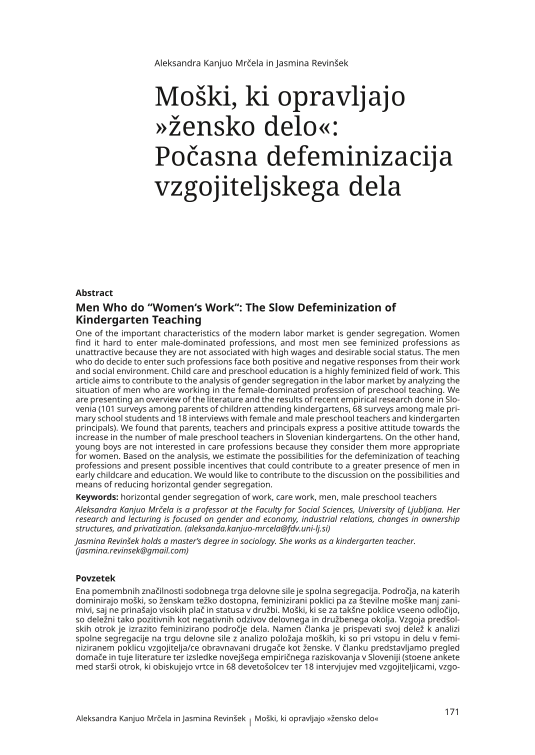One of the important characteristics of the modern labor market is gender segregation. Women find it hard to enter male-dominated professions, and most men see feminized professions as unattractive because they are not associated with high wages and desirable social status. The men who do decide to enter such professions face both positive and negative responses from their work and social environment. Child care and preschool education is a highly feminized field of work. This article aims to contribute to the analysis of gender segregation in the labor market by analyzing the situation of men who are working in the female-dominated profession of preschool teaching. We are presenting an overview of the literature and the results of recent empirical research done in Slovenia (101 surveys among parents of children attending kindergartens, 68 surveys among male primary school students and 18 interviews with female and male preschool teachers and kindergarten principals). We found that parents, teachers and principals express a positive attitude towards the increase in the number of male preschool teachers in Slovenian kindergartens. On the other hand, young boys are not interested in care professions because they consider them more appropriate for women. Based on the analysis, we estimate the possibilities for the defeminization of teaching professions and present possible incentives that could contribute to a greater presence of men in early childcare and education. We would like to contribute to the discussion on the possibilities and means of reducing horizontal gender segregation.




